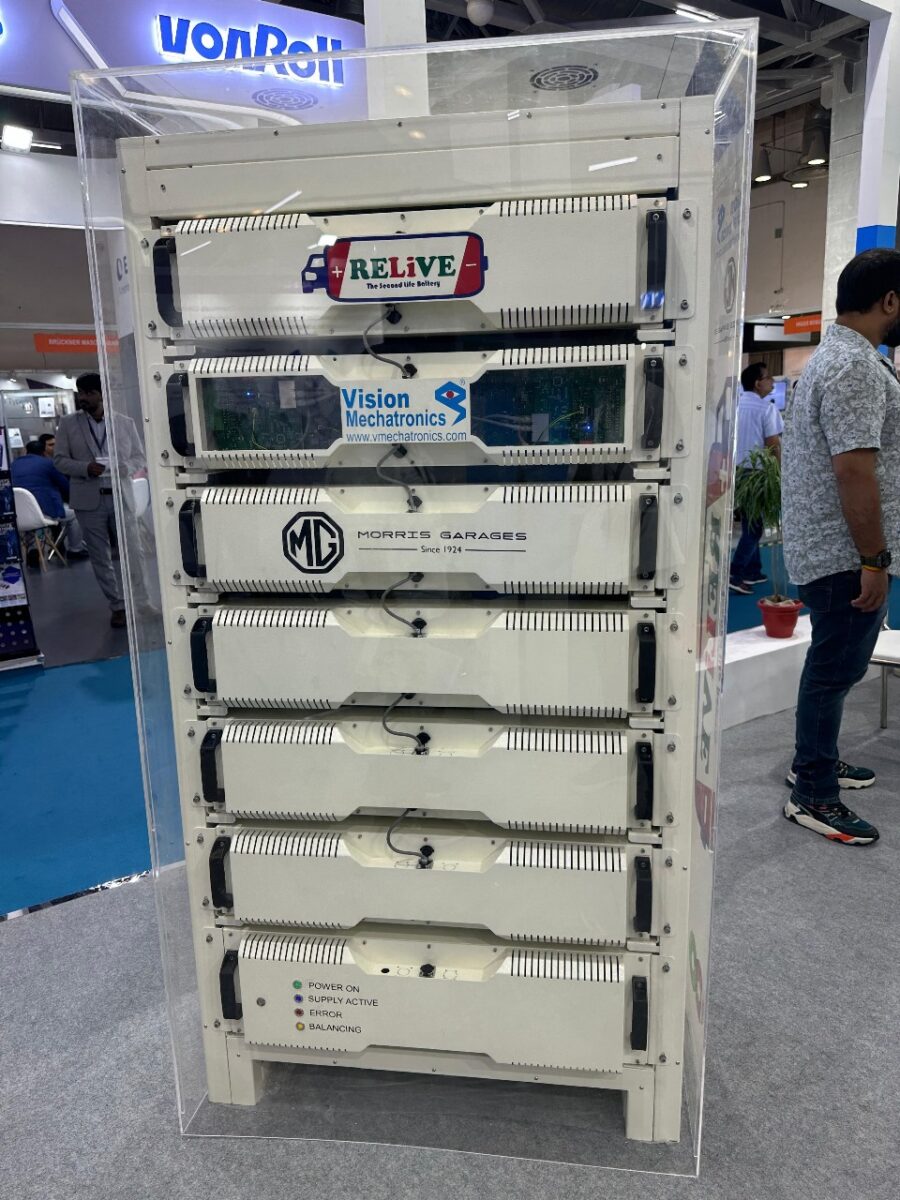While lithium-ion batteries are crucial for powering EVs, they eventually reach a point where their performance declines. Rather than discarding these batteries, a sustainable solution is emerging: repurposing them for stationary applications.
Second-life batteries are lithium-ion batteries that have been retired from their primary use in EVs. While they may not have the same peak performance as new batteries, they still retain a significant amount of capacity. This makes them ideal for applications that don’t require the same level of power or fast charging as EVs.
In particular, second-life batteries offer a compelling solution for C&I sectors seeking cost-effective, high-performance energy storage.
India’s Vision Mechatronics has launched the nation’s first high-voltage (HV) second-life battery with an indigenous active balancing battery management system. It has partnered with JSW MG Motors India to repurpose retired MG ZS EV batteries for industrial use. By extending battery life, this collaboration reduces waste and offers a sustainable, cost-effective energy storage solution for India’s industries.
Vision Mechatronics’ second-life battery, called ReLiVE, is deployed in a Pune-based facility, supporting sustainability and circular economy goals. The initial deployment uses six modules from MG ZS EV batteries and is paired with an industrial UPS to deliver 36 kW of power.
ReLiVE is customizable from 180V to 1500V, catering to diverse C&I sector needs. This provides a significant price advantage and helps businesses achieve their ESG and sustainability targets.
The battery features preventive predictive monitoring to ensure optimal battery performance and early detection of potential issues, and rigorous safety measures to protect against thermal runaway and other hazards. It can be tailored to meet the specific requirements of various stationary applications.
“ReLivE allows businesses to significantly reduce upfront capital expenditures without compromising on power quality. While they may have a slightly shorter lifespan compared to brand-new batteries, “ReLiVe” delivers comparable performance, allowing companies to benefit from renewable energy sources without the fear of missing out on technological advancements. This sustainable and economical approach provides a practical way for C&I sectors to embrace energy efficiency and reduce their environmental footprint,” Rashi Gupta, founder & managing director of Vision Mechatronics, told pv magazine.
Benefits of second-life batteries
- Environmental sustainability: Repurposing batteries reduces the need for new materials and manufacturing, minimizing the environmental impact.
- Cost-effectiveness: Second life batteries are typically more affordable than new batteries, making them a financially attractive option.
- Energy storage: They can be used in stationary energy storage systems to store excess renewable energy, such as solar or wind power, for later use.
- Grid stability: Second life batteries can help stabilize the electrical grid by providing backup power during peak demand or grid outages.
Applications
- Residential energy storage: Second life batteries can be installed in homes to store excess solar energy generated during the day, reducing reliance on the grid.
- Commercial energy storage: Businesses can use second life batteries to store energy for peak shaving, load balancing, and backup power.
- Grid-Scale energy storage: Large-scale energy storage systems can be built using second life batteries to support renewable energy integration and improve grid reliability.
- Telecommunications infrastructure: Second life batteries can provide backup power for telecommunication towers and data centers.
This content is protected by copyright and may not be reused. If you want to cooperate with us and would like to reuse some of our content, please contact: editors@pv-magazine.com.









Master piece of information
Superb